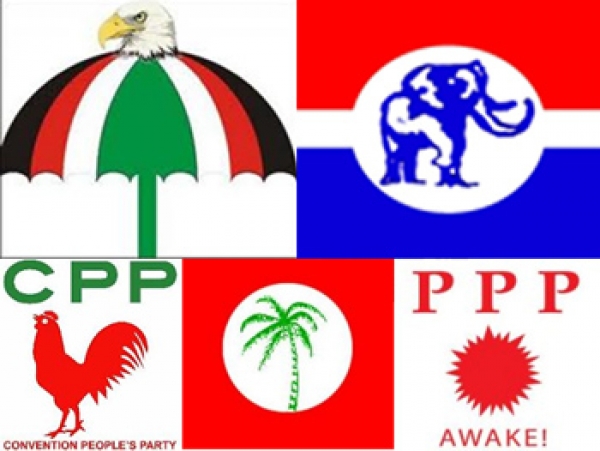Democracy thrives on the promise that political parties, as vehicles of governance, are formed to address societal challenges and advance national development. In Ghana, since the advent of the Fourth Republic in 1992, political parties have positioned themselves as problem solvers, presenting manifestos filled with policy prescriptions intended to uplift the economy, enhance social services, and strengthen democratic governance (Gyimah-Boadi, 2009). However, the reality often reveals a paradox: these same parties frequently become the very source of problems they pledged to solve. This irony underscores the contradictions within Ghana’s party politics, where self-interest, corruption, and power struggles overshadow the quest for genuine national progress.
The Promise of Problem Solving
Political parties in Ghana, particularly the two dominant ones, that is the New Patriotic Party (NPP) and the National Democratic Congress (NDC), have campaigned on promises to solve pressing national issues. These range from unemployment, weak healthcare systems, infrastructural deficits, and corruption to educational reform (Boafo-Arthur, 2006). The expectation is that once in power, these parties will deploy competent leadership, sound policies, and national resources toward problem-solving.
The Irony of Problem Causation
Instead of resolving issues, Ghanaian party politics often exacerbates them in several ways:
Corruption and Resource Mismanagement: Political parties that campaign against corruption frequently become embroiled in scandals once in office. This undermines public trust and diverts scarce resources away from development projects. For instance, successive governments have faced allegations of inflated contracts, ghost names on payrolls, and misappropriation of funds intended for development (Ayee, 2019).
Winner-Takes-All Politics: The entrenched “winner-takes-all” system fosters exclusion, polarization, and the misuse of state institutions for partisan gain. Rather than building inclusive governance structures, ruling parties often use their tenure to entrench power and marginalize opponents, deepening national division (Osei, 2013).
Policy Inconsistencies: Instead of continuity, successive governments often abandon or politicize policies initiated by their predecessors. For example, while one government may initiate a health infrastructure program, its successor may abandon or rebrand it, wasting resources and stalling progress. This cycle turns solutions into problems of waste and inefficiency.
Erosion of Institutions: Parties that should strengthen democratic institutions often undermine them by politicizing appointments in the judiciary, public service, and security forces. This weakens institutional independence, making them partisan battlegrounds rather than neutral problem solvers (Gyampo, 2015).
The Broader Implications
The irony of Ghanaian party politics has dire consequences. First, it breeds cynicism and apathy among citizens, who increasingly lose faith in the ability of politics to deliver meaningful change. Second, it stalls socio-economic progress, as energy is expended on political score-settling rather than policy implementation. Finally, it risks democratic backsliding, as weakened institutions may fail to check executive excesses, leading to authoritarian tendencies masked as democratic rule.
The Way Forward
To break this cycle, Ghana must:
- Reform the winner-takes-all system to foster inclusivity and power-sharing.
- Strengthen independent anti-corruption institutions with insulation from political interference.
- Build a culture of policy continuity to ensure national, not partisan, development.
- Enhance civic education so that citizens hold parties accountable beyond electoral promises.
Conclusion
The irony of Ghana’s party politics is that the very institutions and actors meant to solve national problems often create and perpetuate them. Until political parties prioritize national interest over partisan gain, Ghana’s democratic promise will remain undermined by cycles of unfulfilled promises, institutional decay, and public disillusionment. The transformation of parties from problem causers back to genuine problem solvers is not only desirable but essential for sustainable national development.
References
Ayee, J. R. A. (2019). Manifestos and elections in Ghana’s Fourth Republic. Accra: Friedrich-Ebert-Stiftung.
Boafo-Arthur, K. (2006). Voting for democracy in Ghana: The 2004 elections in perspective. Accra: Freedom Publications.
Gyampo, R. E. V. (2015). Youth politics in Ghana: A study of the role of youth in Ghanaian politics. Journal of African Elections, 14(2), 96–114.
Gyimah-Boadi, E. (2009). Another step forward for Ghana. Journal of Democracy, 20(2), 138–152.
Osei, A. (2013). Party system institutionalization in Ghana and Senegal. Journal of Asian and African Studies, 48(5), 577–593.


